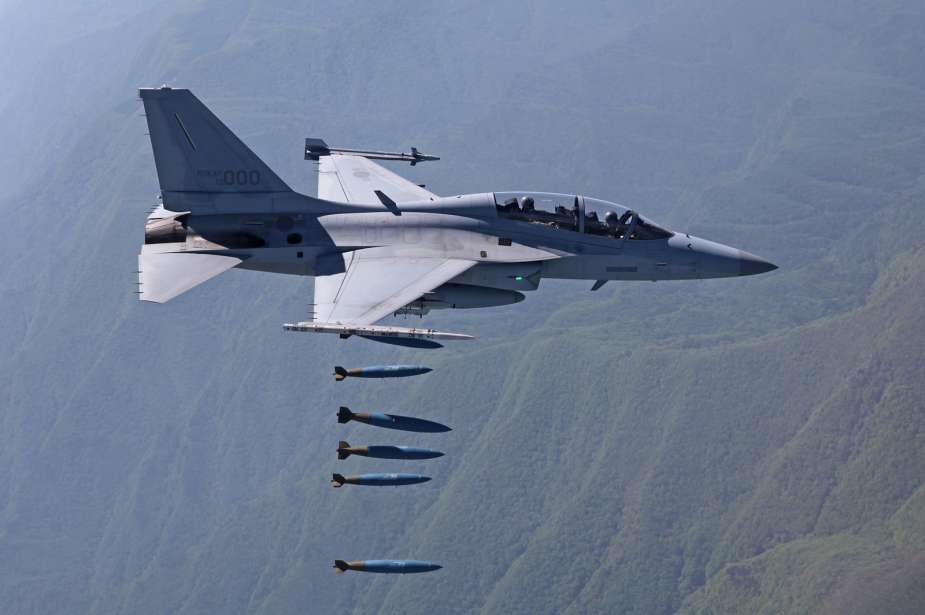Breaking news
KAI to develop single-seater FA-50 light combat aircraft with new investment plan.
Korea Aerospace Industries Ltd. (KAI) has unveiled plans to develop an autonomous aerial vehicle (AAV) and a single-seat version of its FA-50 light combat jet, aiming to diversify its offerings and increase its market share. The announcement came after the board of directors approved a total investment of 90.9 billion won (approximately $68.8 million) in these projects.
Follow Air Recognition on Google News at this link
 KAI FA-50 Light Combat Aircraft (Picture source: Korea Aerospace Industries Ltd)
KAI FA-50 Light Combat Aircraft (Picture source: Korea Aerospace Industries Ltd)
This move comes in the wake of the company's recent successes, such as the export of FA-50 jets to Poland and Malaysia, and the development of the KF-21, the country's first indigenous supersonic combat jet. KAI reported a significant increase in its sales in 2023, reaching 3.8 trillion won (approximately $2.88 billion), a 37% increase from the previous year.
For the AAV, KAI plans to allocate 150 billion won (approximately $113.9 million) towards its development, with an initial phase of design and demonstration of key technologies scheduled for 2024-2025, and an initial budget of 55.3 billion won (approximately $41.9 million). The goal is to complete the vehicle's manufacturing and test flights by 2028, aiming for commercialization by 2031 after obtaining the necessary approvals.
In parallel, KAI intends to invest 35.6 billion won (approximately $27 million) in developing a single-seat version of the FA-50, responding to a growing demand in the global multirole combat aircraft market. The company has so far exported 138 units of the FA-50, all equipped with two seats, and acknowledges the demand for a single-seat version.
The company aims to capture more than 50% of the global single-seat fighter jet market, with an ambition to sell more than 300 units in a sector comprising about 450 aircraft.
Additionally, KAI's board of directors also approved the issuance of 400 billion won (approximately $303.4 million) in corporate bonds to refinance maturing debts and maintain stable liquidity.
These initiatives by KAI aim to support its expansion and strengthen its presence in the global aerospace market while exploring new avenues for growth in the aerial mobility sector.


























